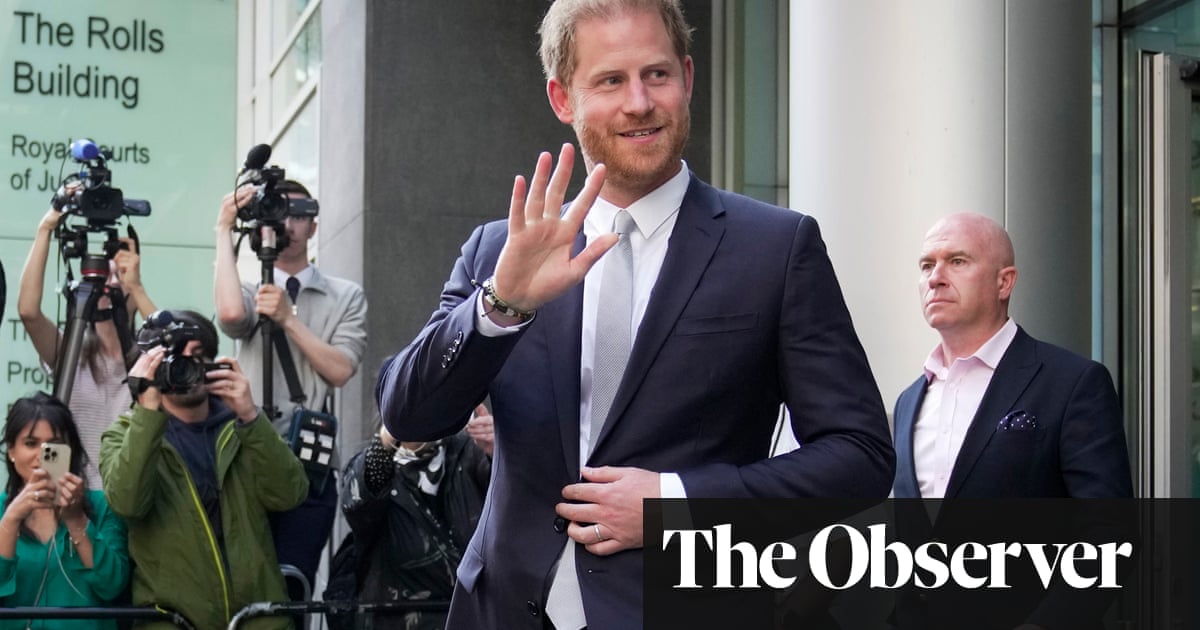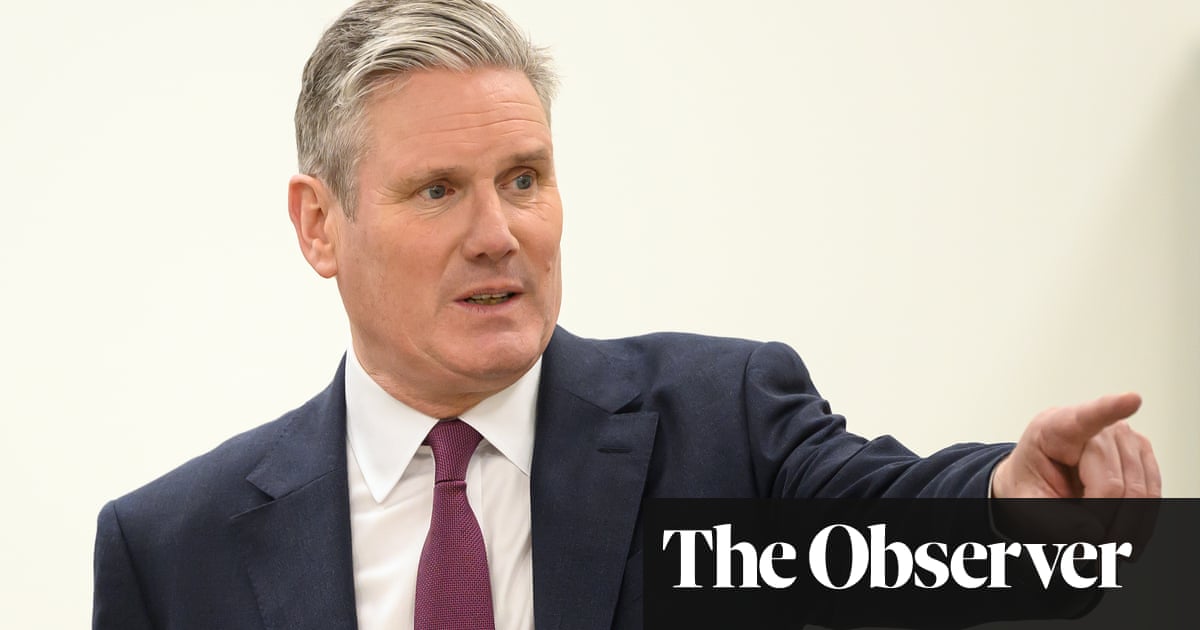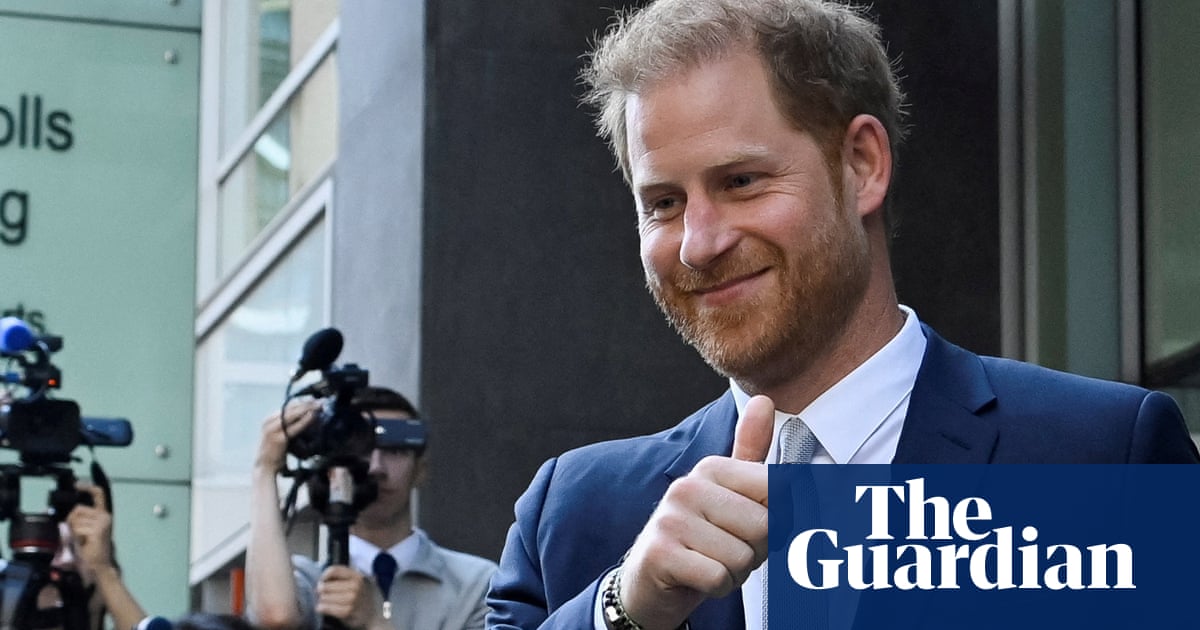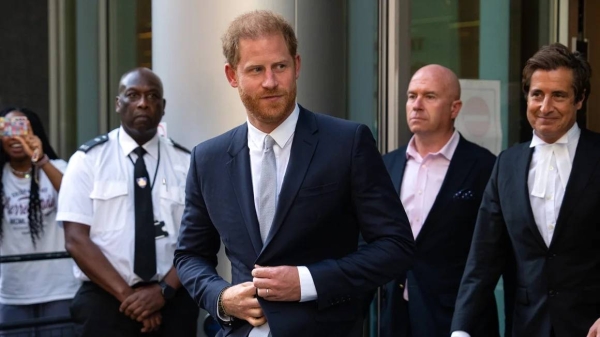
Inside the ballroom of the Hilton Bankside on Thursday evening, the mood among journalists was high. Prizes were being handed out, celebratory toasts were made and backs were slapped. Officiating at the annual press awards jamboree was a bow-tie-wearing Dominic Ponsford, the editor-in-chief of the industry journal behind the event, who even took a moment to joke about past clashes with Prince Harry, the fabled “ginger whinger”.
Seated at the tables around him were many of those newspaper editors and columnists who have been publicly warring with the King’s errant second child, including Piers Morgan, the former gossip journalist, talent show judge, ex-editor of the Daily Mirror and television presenter. At one point towards the end of the night the group of singers hired to jolly up the lengthy proceedings, burst into the chorus from the song The Final Countdown. Great fun.
But a day later and some in the room are facing their own ominous countdown, or at least a potential final reckoning. Could the landlord at that famous “last chance saloon”, the watering hole at which Home Office minister David Mellor once warned the “gentlemen” of the popular press they were drinking in, really be shouting out “Time, please” once again, twenty years on?
The ruling from Mr Justice Fancourt in the High Court on Friday, one which found the Duke had been subjected to damaging, illegal press activity between 2003 and 2009, has had some immediate effects. The Mirror Group of newspapers, in the frame during the legal proceedings, “apologised unreservedly” for “historical wrong-doing” later that day. But the impact of Fancourt’s 386-page judgement on the reputations of other British newspaper businesses may take a little longer to show.
“Thank goodness for Prince Harry. The police now need to look at this and promptly,” said Brian Cathcart, the media campaigner and Hacked Off founder. “There are many people involved who are still in prominent, opinion-forming positions on newspapers.”
Dr Evan Harris, a former director of Hacked Off who has spent the last few years carrying out legal analysis for the claimants in the hackinglitigation, also believes the torch of justice has just been relit by the duke. “Since the contentious decision by the Crown Prosecution Service in 2015 that there was insufficient evidence to prosecute any Mirror journalist or executive for phone hacking, tens of thousands of documents have been disclosed in this litigation, and as they were deployed in open court, many key documents are available to the police to see.”
There are also dozens of new witnesses and extensive judicial findings, Harris added. “The claimants stand ready to assist the police and CPS with identifying such material relevant to the original criminal conduct and to the new questions of perjury and perverting the course of justice,” he said.
Writing in Prospect magazine, its editor, Alan Rusbridger, who edited the Guardian when it broke the hacking story in 2009, argues that Fancourt’s words have cut through years of deceit. “We know that newspaper managements at two of our biggest media companies have consistently concealed and denied the truth about what went on,” he wrote. “They have issued dishonest statements and have lied to parliament, the stock exchange, to other journalists, to regulators and even the Leveson inquiry, set up to establish the truth. And now some have been caught telling porkies in court.”
Nick Davies, who first broke the hacking scandal while at the Guardian, was quick to express his more limited hopes for change on social media. “If the UK were just and democratic, Murdoch’s Talk TV would now have to consider suspending Piers Morgan and Richard Wallace, and the Met police would have to scope an investigation into Mirror Group crime. If,” he wrote.
More than a billion pounds has already been paid out in costs and damages, Rusbridger emphasised, without any admissions of guilt implicating senior editors or owners. And key emails have been deleted and documents lost. Speaking to the Observer this weekend, he added: “The press managed to sidestep the second part of the Leveson inquiry, which was supposed to deal with past wrongdoing. So it’s now been left to individual litigants to drag the truth out into daylight. It’s not very satisfactory, and probably can’t be fully achieved until everyone involved in past misdeeds has moved on – or been moved on.”
The focus is now likely to switch to the Daily Mail, against which the Duke of Sussex still has many outstanding allegations. It could even be the beginning of what critics of British “tabloid culture” are heralding as an era of serious redress that, for them, would make up for the dropping of the planned second part of the Leveson inquiry, a decision taken against the judge’s wishes by former Tory culture secretary, Matt Hancock. Murdoch’s newspaper group, owner of the Sun, does look vulnerable. Many of those implicated in the judge’s ruling are working there. Former editor of the rightwing popular titles the Sun and the defunct News of the World, Rebekah Brooks, who once avoided disgrace, is now CEO of News UK. This weekend her rehabilitation looks wobbly.
Morgan, now a presenter on Murdoch’s Talk TV, gave an angry doorstep statement on Friday and still appears to be banking on dodging bullets. His carefully worded defence did not deny knowledge of the practice of phone hacking and so did not contradict the judgement, as the performer and campaigner Steve Coogan, who settled a claim in 2017 for a six-figure sum, wryly noted on Saturday morning. More optimistically, Coogan added that there now seems a chance that the protective “omertà” guarding the guilty editors has begun to weaken.
He told the Observer yesterday: “We now have a high court judge making clear that a judge-led public inquiry was misled by multiple witnesses , namely Sly Bailey, Paul Vickers, Lloyd Embley, Piers Morgan, Tina Weaver, Neil Wallis and Richard Wallace, and of course that public inquiry was cancelled halfway through, against the wishes of Sir Brian Leveson, by Matt Hancock at the behest of the newspapers – including Mirror Group – who were being investigated.”
Prince Harry has described his chief virtue as patience, but Coogan now calls him “brave” for breaking the “Faustian pact” he claims some royals have had with the press, drawn up for reasons of self-preservation.
Prince Harry’s attitude diverged from the family path well before the birth of his sonArchie in 2019, but he became much bolder after that. Later that year his wife, Meghan Markle, announced that she was suing the Mail on Sunday for printing parts of her letter to her estranged father and the duke also revealed he was taking action over alleged phone hacking.
Two years ago, the Prince won an apology from the Mail on Sunday over an article claiming he had turned his back on the military and the high court in London ruled that the same paper had breached Meghan’s privacy by publishing extracts from her letter. A year ago Harry started a libel claim against the Mail on Sunday over an article claiming he had tried to keep official protection for his family and then, in October last year, he joined the singer Elton John and others in suing the publisher of the Daily Mail, alleging phone tapping and other breaches of privacy.
The Duke’s unexpected, even historic, appearance at the high court at the beginning of his lawsuit against the Daily Mail’s publisher took place in March, and then, in early June, he arrived to give evidence at the Mirror Group phone hacking trial, arguing that about 140 articles published from 1996 to 2010 contained information obtained via unlawful methods.
There are accusations of vendettas on both sides, of course. It is a term the duke used on Friday when speaking of the vitriol he had detected, ever since he was first exposed by the tabloids as a teenager for smoking cannabis and then for rowing with his brother about whether or not to meet up with Paul Burrell.
Both of these gobbets of information reached the public through illicit means, according to the Fancourt verdict. Yet a former executive at Reach, the national news group that owns the Mirror, suspects the duke and his fellow campaigners are being disingenuous. He may not have gone as far as Morgan, who called the “California-tanned” Duke “greedy” yesterday, but he does believe the celebrity campaigners are out for revenge. “They are settling scores. We all know that, whatever they say in public about their motivation,” the former editor said.
Other more measured defenders of the press, such as Sir Alan Moses, a former chairman of the Independent Press Standards Association, are concerned about attempts to set up a phoney “licensed press” that would operate only within government restrictions. Speaking on the Today programme on BBC Radio 4 this weekend, he said the press should ideally be “unruly”, although subject to the law. There was, Moses argued, an exceptional case to be made for the industry to protect freedom of expression.
For the experienced Guardian journalist Polly Toynbee, the prize of a reformed press can now at least be glimpsed, although a fatal wound inflicted to an ailing newspaper title would not be a good thing: “I am delighted to see press standards called to account and I hope that the people behind this do now get called to account,” she said. “IPSO and press regulation are a disgrace for not investigating this themselves years ago. But it would be a tragedy if we lost the Mirror as a result, an all too rare non-Tory newspaper.”












